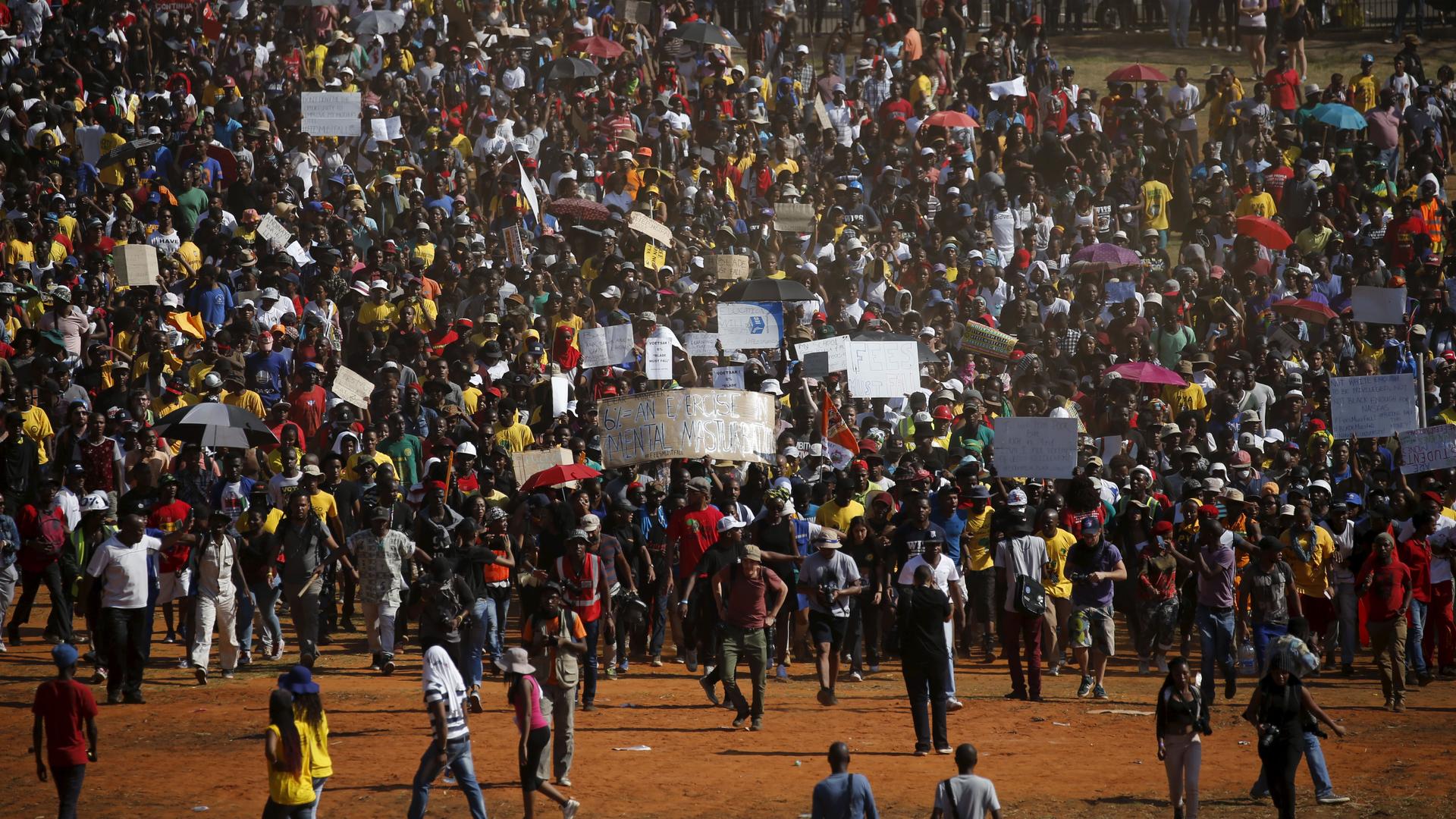Student protests continue in South Africa, despite concessions from the government
Student protesters outside government buildings in Pretoria.
South African President Jacob Zuma has scrapped plans to increase student tuition fees next year, after a week of student protests. But it’s not clear if this will be enough to appease the protesters.
Protests have gripped South Africa all week, leading to clashes with police and some looting.
“They’re very happy at the moment,” says journalist Kim Cloete in Cape Town. “There’s elation that he’s eventually succumbed. But of course this is only the beginning of the battle. It looks like people want no-fee universities. They don’t want to pay for university education at all.”
Zuma was supposed to address a crowd of students in Pretoria, after his decision. But the speech was canceled because of security concerns.
“There’s really a lot of anger between the government and people on the ground who feel that the government is not taking them seriously, especially young people,” says Cleote. “This generation of students is the so-called freedom generation. They call them the democracy kids, who were born in 1994, which is the year of the first democratic elections (in South Africa). And at that time, there were all sorts of promises: free education, free housing, jobs for all. And 21 years later, those promises have just been broken.”
“There just hasn’t been the progress that people have needed,” says Cloete. Other issues are also coming on to the student agenda, like the country’s massive corruption problem.
“Students are very, very frustrated,” adds Cloete. “And it’s very interesting seeing them, many of them children of activists of the 1980s who fought against apartheid, absolutely now rising up in protest, angry with the government and the fees is just the tip of the iceberg.”
“It’s a fascinating moment for South Africa,” says Cloete. “A real breakthrough moment.”
The article you just read is free because dedicated readers and listeners like you chose to support our nonprofit newsroom. Our team works tirelessly to ensure you hear the latest in international, human-centered reporting every weekday. But our work would not be possible without you. We need your help.
Make a gift today to help us reach our $25,000 goal and keep The World going strong. Every gift will get us one step closer.
